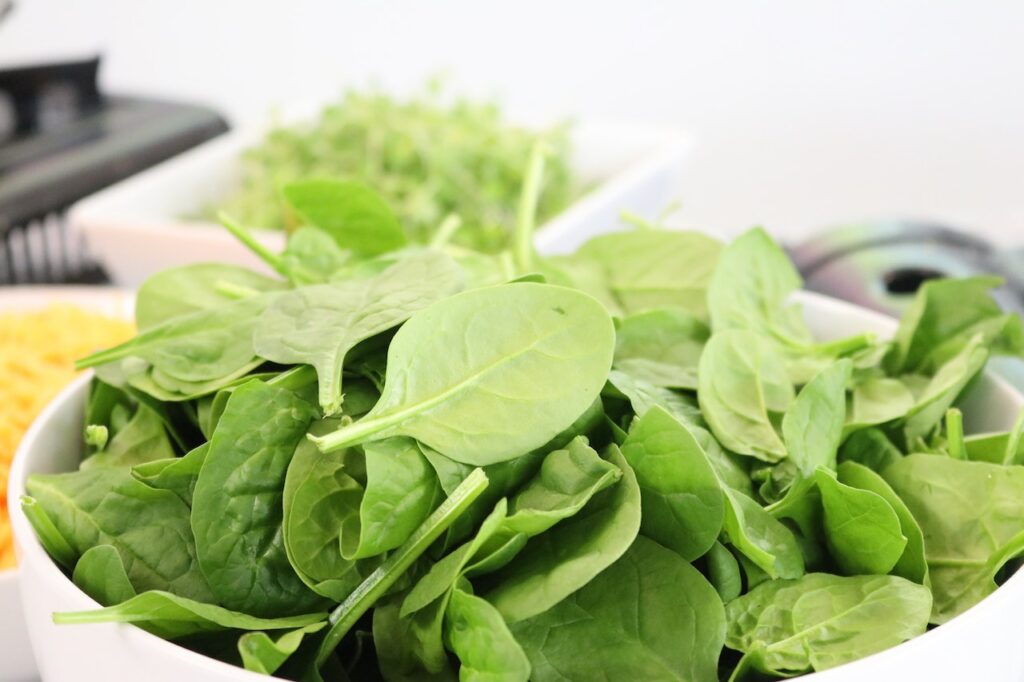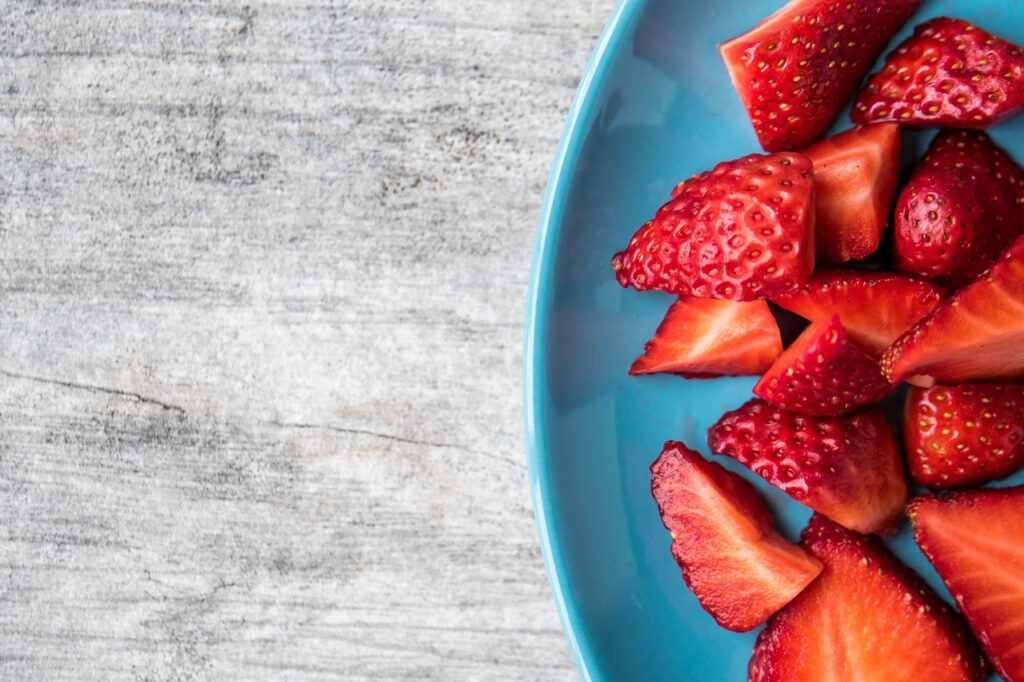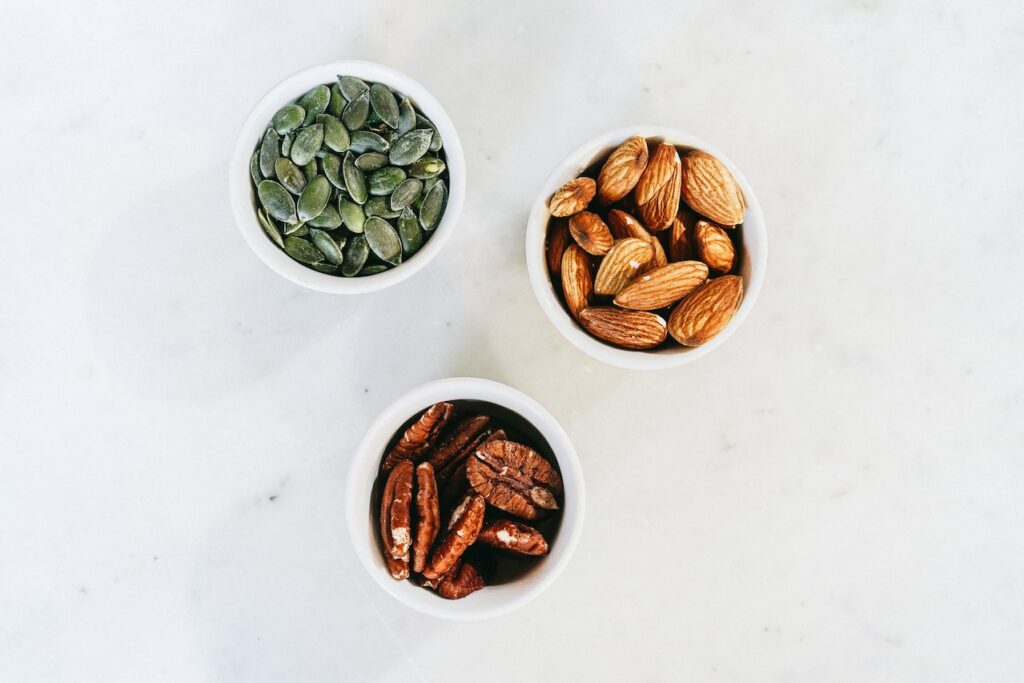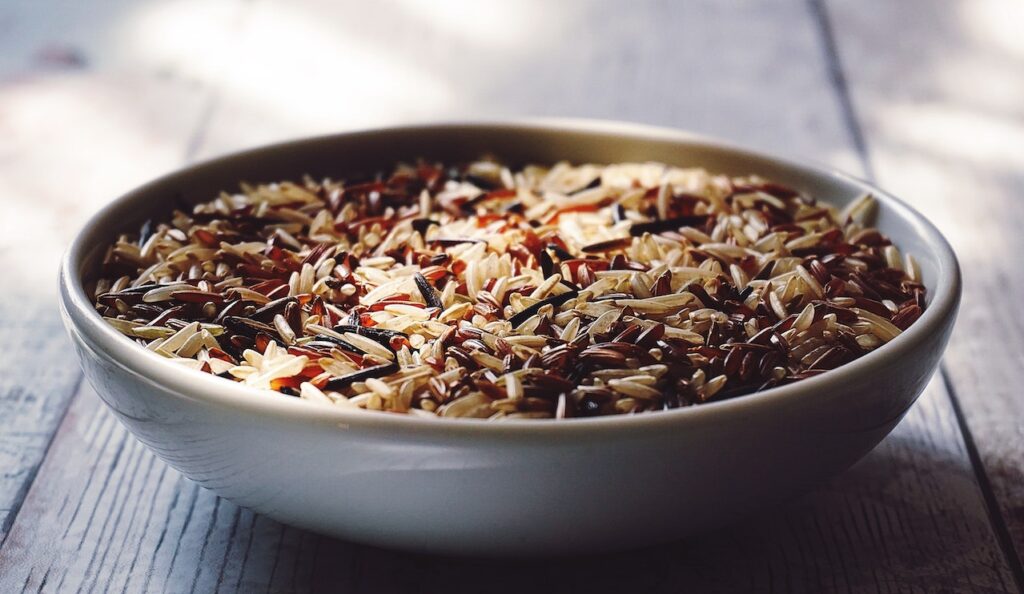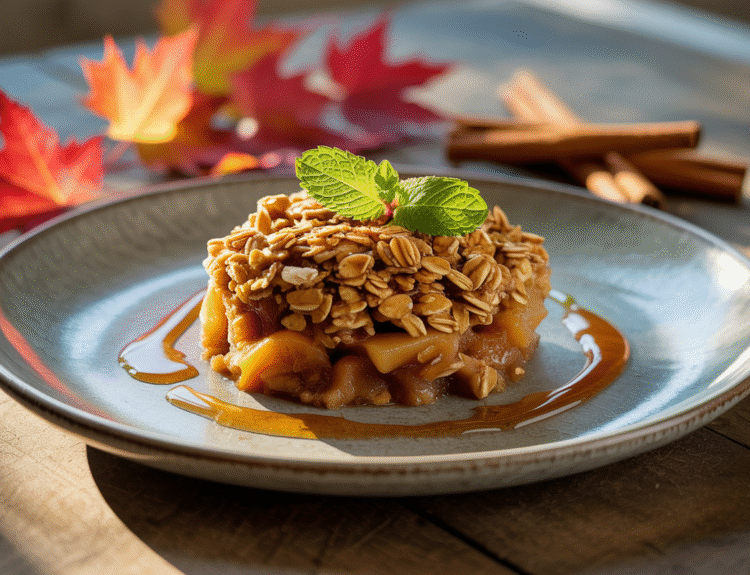What foods help boost mood is a question we often ask ourselves when grumpy or under stress. The truth is that foods can significantly impact our mental health and well-being. In this guide, we’ll explore the science behind what foods help boost mood, highlight the top healthy foods to add to your diet, and discuss which foods to avoid for optimal mental health. So let’s get ready to nourish our minds and feel our best!
Discover the science behind what foods help boost mood and nourish your mind with our guide. Learn about the top healthy foods to eat and which ones to avoid for optimal mental health.
In this article:
- The science behind what foods help boost mood
- What foods help boost mood – Top healthy foods
- Foods to avoid for optimal mental health
THE SCIENCE BEHIND WHAT FOODS HELP BOOST MOOD
The idea that certain foods can help improve mood and cognitive function is supported by scientific research. Studies show that specific nutrients found in food can significantly impact mental health.
One of the critical ways that food can impact mood is through its effects on neurotransmitters. Neurotransmitters in the brain help regulate mood, and certain nutrients found in food can help boost their production. For example, the amino acid tryptophan is a precursor to serotonin. Foods high in tryptophan (turkey, chicken, oats) can boost serotonin levels and improve mood.
Similarly, the omega-3 fatty acids in fatty fish like salmon and sardines have mood-boosting effects. Omega-3s are essential for brain health and can help reduce the risk of depression and other mental health disorders. They may also help boost dopamine production, another neurotransmitter regulating mood.
Other nutrients found in food that can improve mood include B vitamins, magnesium, and zinc. A diet high in fruits, vegetables, and whole grains reduces the risk of depression and anxiety. Conversely, a diet high in processed foods, sugar, and saturated fat has been linked to an increased risk of mental health disorders.
The science behind what foods help boost mood is a fascinating field of study. While it is true that the topic is complex and multifaceted, the growing body of evidence suggests that incorporating mood-boosting foods into your diet significantly impacts your mental health and well-being.
WHAT FOODS HELP BOOST MOOD – TOP HEALTHY FOODS
Eating a balanced diet with many fruits, vegetables, whole grains, and healthy fats is essential for maintaining good physical and mental health. By making simple yet powerful changes to your eating habits, you can nourish your mind and support your overall health meaningfully. So, don’t hesitate to explore the delicious and nutritious world of mood-boosting foods. In the following, we’ll look closer at the best healthy foods for nourishing your mind.
Fatty fish
Fatty fish, such as salmon, tuna, and sardines, are nutritional powerhouses that offer a wealth of health benefits, including the potential to boost your mood. These types of fish are rich in omega-3 fatty acids essential for brain function, and they can even lower rates of depression and anxiety.
In addition to their mood-boosting properties, fatty fish are a source of protein and other nutrients, making them a delicious and healthy addition to any diet.
Leafy greens
When it comes to nourishing your mind and boosting your mood, leafy greens like spinach, kale, and collard greens are some of the most nutrient-dense foods you can eat. These greens contain essential vitamins and minerals like folate and magnesium, which are critical for maintaining healthy brain function and supporting a positive mood.
If you are looking for new ways to increase your intake of green leafy vegetables, try our recipes for the most delicious green smoothies. Incorporating leafy greens into your diet can nourish your mind and promote a positive outlook on life.
Berries
Berries are some of the best foods for boosting mood. These colorful fruits, including blueberries, strawberries, and raspberries, are rich in antioxidants that help protect your brain from oxidative stress and inflammation. In addition to their antioxidant properties, berries are an excellent source of fiber and other essential nutrients, including vitamin C and vitamin K.
Adding berries to your diet can help protect your brain and support a positive mood. So, next time you’re looking for a tasty and healthy snack, reach for some fresh berries and enjoy the benefits of these delicious and mood-boosting fruits.
Nuts and seeds
Nuts and seeds are a fantastic option if you’re wondering what foods help boost mood. Almonds, walnuts, or pumpkin seeds are rich in healthy fats, protein, and magnesium, which can positively impact your mental health.
We suggest you pack your favorite nuts and seeds in Small Food Storage Containers, which are convenient to take with you so you always have a healthy snack ready. By incorporating a variety of nuts and seeds into your diet, you can help improve your mood, reduce anxiety, and support your overall mental well-being.
Dark chocolate
If you’re a chocolate lover, you already know that dark chocolate can help boost your mood! Dark chocolate contains flavonoids that positively impact mental health. These compounds have been linked to improvements in mood and reductions in stress levels, making dark chocolate a great choice when you need a little pick-me-up.
When choosing dark chocolate, choose varieties with a high percentage of cocoa solids, as they have more flavonoids and fewer added sugars. Here you can learn more about how to pick the healthiest dark chocolate.
Fermented foods
Eating fermented foods like yogurt, kimchi, and sauerkraut can provide numerous benefits for both your gut health and your mood. These foods contain probiotics that help support a healthy gut microbiome. Researches show that a healthy gut can positively impact mood and mental well-being. By improving the diversity and abundance of beneficial gut bacteria through fermented foods, you may experience improved mood, reduced stress and anxiety, and better overall mental health.
Check out The Farmhouse Culture Guide to Fermenting with 100 delicious recipes to learn more about fermentation. Thanks to its beautiful design, simple recipes, and helpful information, this cookbook can also be a fantastic gift for every home fermenter.
Whole grains
These complex carbohydrates are a slow-release energy source, which can help stabilize your blood sugar levels and keep your mood stable throughout the day. In addition to providing sustained energy, whole grains are rich in nutrients like B vitamins, iron, and fiber, essential for maintaining a healthy brain and body.
By replacing refined grains like white bread and pasta with whole grains like quinoa, oats, and brown rice, you can give your body the fuel it needs to stay energized and uplifted, making it easier to tackle your day with a positive outlook.
Eggs
Eggs are not only an easy-to-prepare food but also a great addition to a mood-boosting diet. As a complete protein source, eggs are an excellent choice for breakfast, lunch, or dinner. Moreover, they are rich in nutrients like choline, which is crucial for brain function and the production of mood-regulating neurotransmitters.
Whether you enjoy them boiled, scrambled, or in an omelet, adding eggs to your diet can be a simple and tasty way to nourish your mind.
Incorporating these foods into your diet can be a simple way to boost your mood and support your overall well-being. So, the next time you’re grocery shopping or planning your meals, be sure to add these mood-boosting foods to your shopping list!
FOODS TO AVOID FOR OPTIMAL MENTAL HEALTH

Since you have learned what foods help boost mood, let’s find out what food you should avoid or limit for optimal mental health.
- Sugar: Consuming large amounts of sugar leads to spikes in blood sugar levels, which can negatively affect mood and energy levels.
- Processed foods: Processed foods, such as fast food, are often high in unhealthy fats, salt, and sugar and can contribute to inflammation in the body and brain, linked to depression and anxiety.
- Alcohol: While alcohol may temporarily lift your mood, it can also disrupt sleep patterns and lead to feelings of anxiety and depression.
- Caffeine: Besides its potential adverse effects on sleep and anxiety, excessive caffeine intake has also been linked to increased nervousness, restlessness, and irritability. While it is generally safe for most people to consume moderate amounts of caffeine, it is essential to be mindful of individual sensitivities and to avoid consuming too much caffeine, particularly later in the day.
- Artificial sweeteners: They seem like a healthier alternative to sugar. However, they can still adversely affect mood and mental well-being. Studies have suggested that artificial sweeteners may disrupt the gut microbiome, which can harm mental health.
_____
The food we eat can significantly impact our mood and overall mental well-being. By incorporating these healthy foods into your diet and avoiding foods that can be harmful, you can support your brain and body in achieving optimal well-being. So start nourishing your mind with the right foods today!
This post may contain affiliate links. You can read the affiliate disclosure here.




